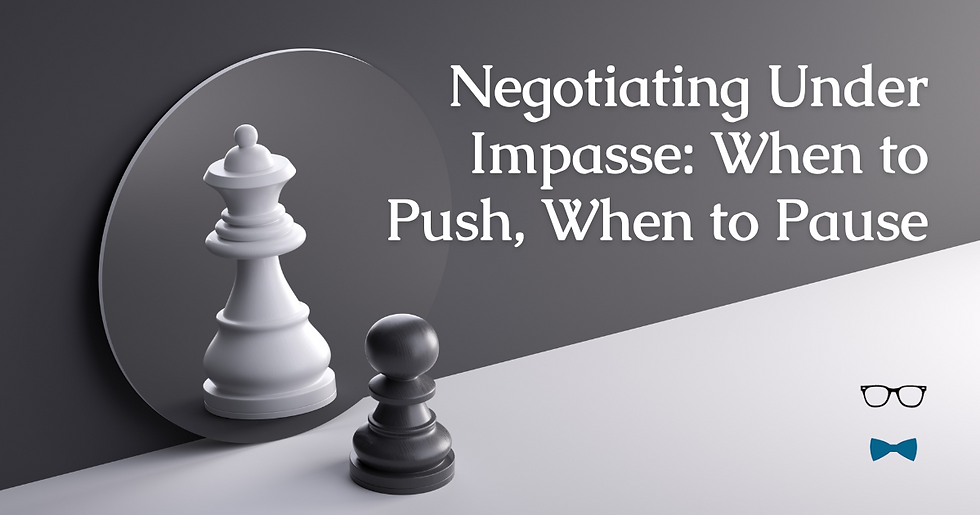The Art of Listening in Mediation
- Cooper Shattuck

- Oct 25, 2023
- 2 min read
Updated: Jan 13

Technology has made it increasingly easier to communicate, but are our communications better? More effective? More efficient? Communication involves speaking (writing, drawing, graphics, or just sounds) and listening. Effective communication means that the listener (recipient or observer) doesn’t just hear (or see) the communication but understands it. While technology (including social media) offers many new and stimulating ways to express ourselves, have they actually increased our listening skills?
Effective communication is the key to productive negotiations and thus plays a starring role in successful mediation. So, communication skills (including listening) are important for a mediator and the parties to mediation.
Listening allows us to achieve the best (most wise) outcome in negotiations.
We must listen for the other parties’ interests that need to be addressed and met. Listen for what is important and not so important to them. Listen for opportunities to reach a win-win result or a creative resolution. Listen for motivating factors. Listen for who is actually calling the shots and their interests. A good negotiator is a good listener. It's like what Aaron Burr tells Alexander Hamilton in Hamilton, but instead it’s “Talk less. Listen more.”
How we conduct mediation provides many opportunities to increase the chances of reaching a resolution, but it challenges our ability to listen.
As we spend most of our time at mediation in caucuses, our ability to engage with the other side – to listen to the other side – is hampered. Therefore, the mediator plays an important role in effectively communicating what one would see, hear, and understand in face-to-face interactions with the other side. An effective mediator must understand the importance of listening and be a good listener.
Listening can be done actively and passively.
Passive listening allows someone “on a roll” and effectively speaking to finish their thoughts and express their emotions and feelings. But all listening is not and should not be passive. Active listening can reinforce and clarify thoughts, feelings, and emotions and encourage further or additional discourse. Active listening involves many skills and techniques, such as asking open-ended questions, mirroring, reframing, and affirming. Questions produce more fertile ground for listening than pontificating. And using strategic, active listening skills can sow plowed ground and add fertilizer as potential settlements begin to germinate and emerge.






Comments